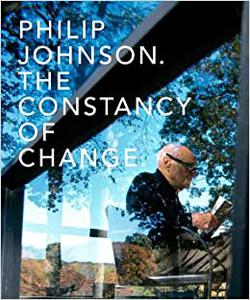
Emmanuel J. Petit, Robert A. M. Stern, "Philip Johnson: The Constancy of Change"
English | 2009 | pages: 278 | ISBN: 0300121814 | PDF | 25,8 mb
Essays by Beatriz Colomina, Peter Eisenman, Kurt W. Forster, Mark Jarzombek, Charles Jencks, Phyllis Lambert, Reinhold Martin, Detlef Mertins, Joan Ockman, Terence Riley, Vincent Scully, Michael Sorkin, Kazys Varnelis, Stanislaus von Moos, Ujjval Vyas, and Mark Wigley
Witty, wealthy, and well connected, the architect Philip Johnson was for years the most powerful figure in the cultural politics of his profession. As the Museum of Modern Art's founding architecture curator in the early 1930s, he helped establish modernism in the United States; as the architect of New York's AT&T building-the "Chippendale skyscraper"-he gave postmodernism commercial viability on a large scale during the 1980s.
In this book, sixteen eminent voices in the architectural establishment present their ideas on Johnson, focusing on both his eclectic design approach and his vivid intellect. Among the topics covered are Johnson's wide-ranging knowledge of art history, his endorsement of different versions of architectural modernism, his use of rhetoric and the mass media, his social persona, and his politics of patronage.
Owing perhaps to the control he exerted over critiques of his work, few scholarly treatments of Johnson exist. This "unauthorized" account, the first in-depth study to follow his death, constitutes a milestone in the analysis of one of America's most renowned architects.
Links are Interchangeable - No Password - Single Extraction



